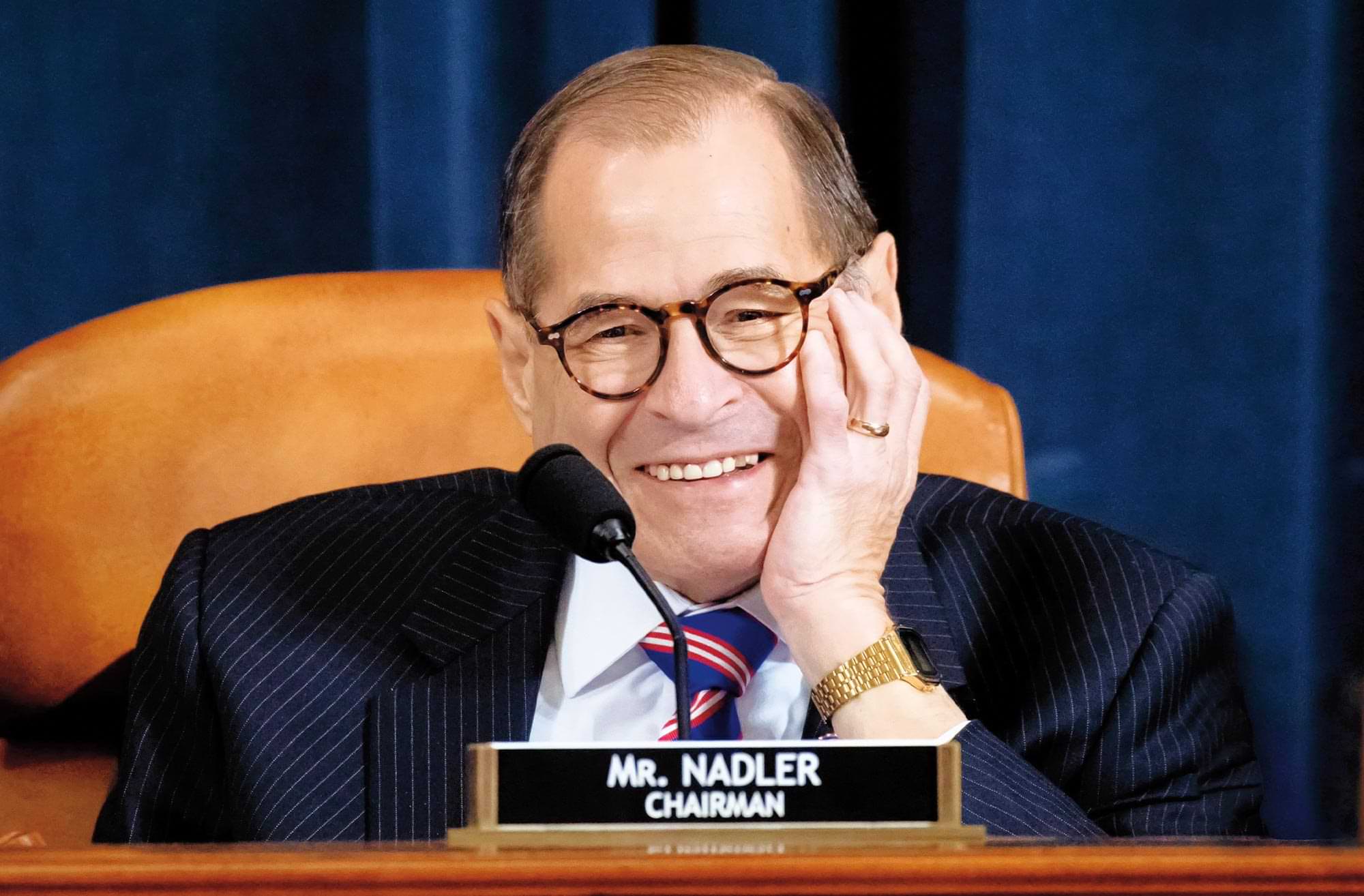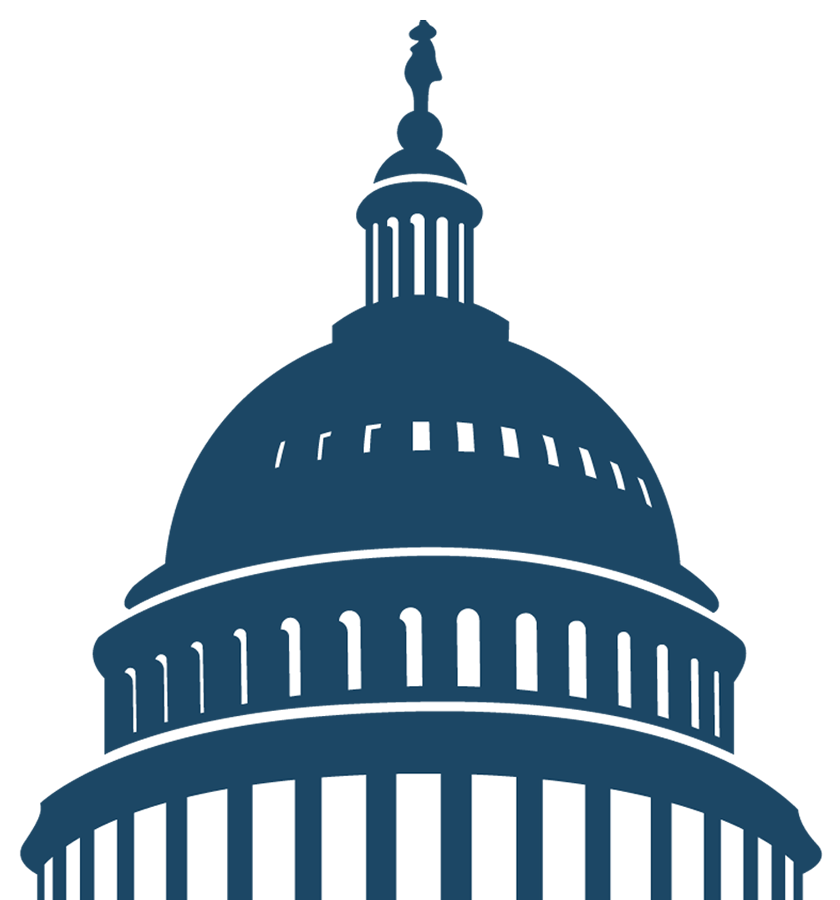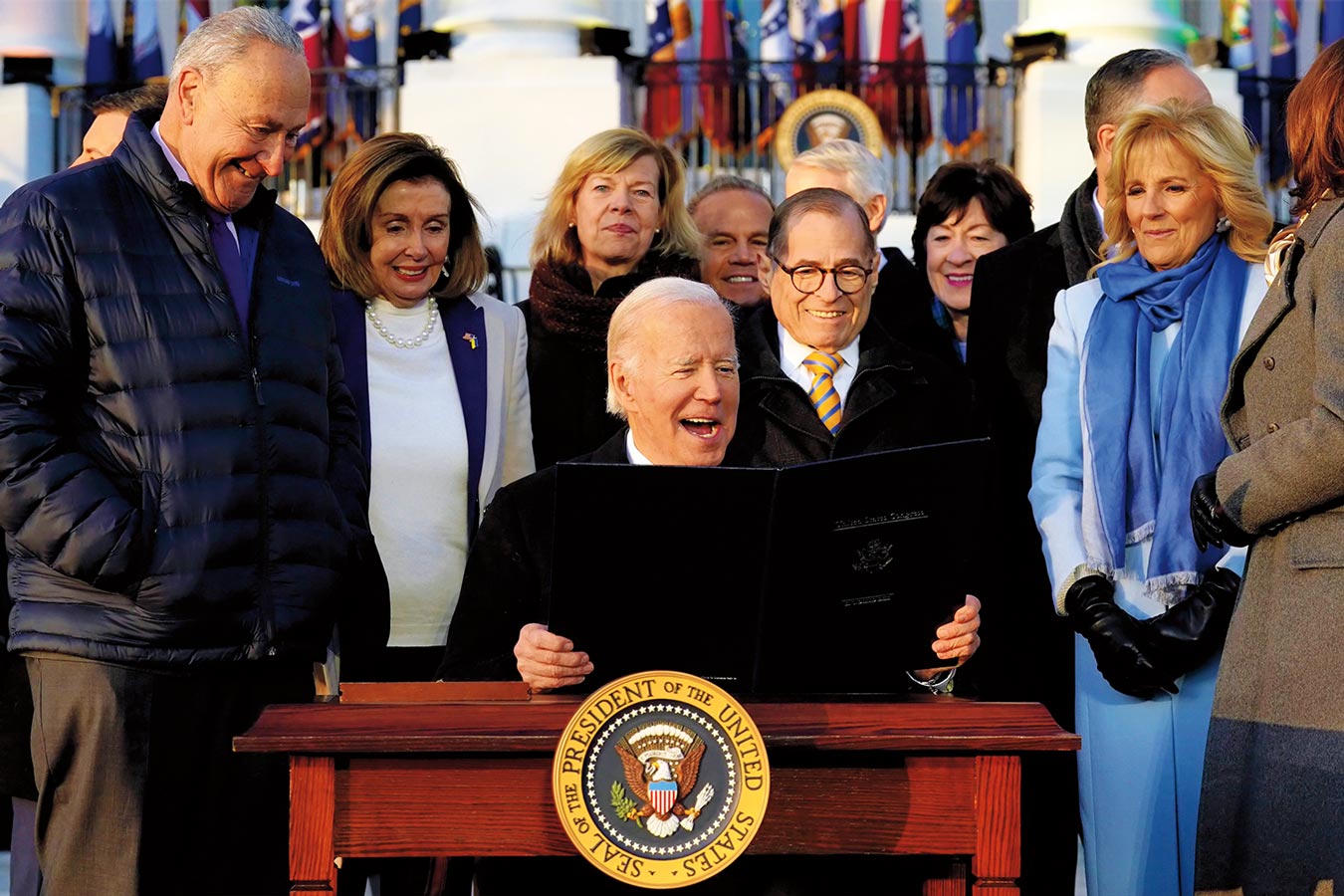
A More Perfect Union,
One Law at a Time
Now, in his 31st year representing the Upper West Side—and Lincoln Center—in Congress, Nadler speaks to what keeps him committed to a life of service.
By Eugene K. Chow


Nadler vividly recalled reading about a court ruling when he was 12 or 13 years old. “The police beat a confession out of somebody, and the Supreme Court upheld the decision,” he said. “I remember thinking, ‘There’s a lot wrong with that, and when I get older, I’m going to fix that.’”
To right the wrongs he saw, the young Nadler believed the best way was to “get into politics and get into positions of authority.” So he set himself on a path to achieve just that. His first foray into electoral politics came when he was voted president of his senior class at Manhattan’s Stuyvesant High School. By the time he was in college, he had become a fixture within his community, leading neighborhood groups, forming block associations, and working on political campaigns.
As a college student during the Vietnam War, Nadler became a vocal advocate for peace, creating West Side Kids, an organization aimed at electing liberal, anti-war candidates in New York City. His activism also led him to join anti-war candidate Eugene McCarthy’s 1968 campaign for the Democratic presidential nomination.
While McCarthy would eventually lose his bid for the nomination, Nadler remained a political presence in New York City. In his senior year at Columbia University, he was elected a Democratic district leader on Manhattan’s West Side.
In addition to serving as a district leader, Nadler continued his anti-war efforts as the founder and chair of the West Side Peace Committee, a coalition of over 40,000 peace activists that came together for a candlelit march down Broadway in 1969 before heading to protest in Washington, D.C.
Just as his call to service was clear, so was his path to law school. For Nadler, being in politics inevitably meant becoming a lawyer—not just to know the law, but to have a way to support himself if he lost an election.
Of all the law schools in the city, Fordham became his obvious choice. Between working as a law clerk and fulfilling his many leadership roles during the day, he was able to attend class only in the evening. Fordham Law was not just a top law school but also, crucially, offered an evening program, unlike many other law schools in the city at that time.
The next few years would prove to be life-changing. In the summer of 1976, the assembly seat for Nadler’s district unexpectedly opened up. He decided to run for the vacant seat, juggling the campaign with work, his responsibilities as district leader, and night classes at Fordham Law.
At the start of the fall semester, he was declared winner of a hard-fought Democratic primary and went on to win the general election in November. In between work, classes, and campaigning, he had also gotten engaged and was planning a wedding for that December. “I was juggling a lot in my seventh semester in law school,” said Nadler.
A Strong Foundation in Law
“It made you think in constitutional terms—the meaning of the Constitution, why the provisions were there, what they meant, and what a court might interpret them to mean,” said Nadler.
That strong legal training has served him well as a longtime member and chair of the House Judiciary Committee, which oversees legal and regulatory reform, anti-trust laws, and civil liberties, as well as all proposed amendments to the Constitution.
On the whole, he said, his legal training has helped him think “more logically” by “determining what’s extraneous to the essential argument.”
Meanwhile, group projects while in law school gave Nadler the opportunity to perfect the skills of bringing people together. Coordinating with classmates helped him “[learn] how to get diverse opinions to a consensus so you could make a coherent paper or presentation and defend it,” he said. “It really forced you not only to think logically, but to get to know people and how to work with them closely.”
His only regret about his time at Fordham was that he could not participate in the school’s many extracurricular activities, student organizations, and other opportunities. “I took advantage of none of them because I was spending all my time in politics outside of the school,” he said.

Making It Right
As a freshman in the New York State Assembly, he immediately set to work passing key legislation on domestic violence and child support enforcement. “I’m very proud of the fact that in my first year at the State Assembly, I was named Legislator of the Year by the National Organization for Women, and as of now, I’m still one of only two men who have been named that,” he said.
Over the next 16 years as an assemblyman, Nadler would establish himself as a powerful voice for civil rights. Among the many pieces of legislation he ushered into law were the first laws to protect people with AIDS from discrimination. “People are people,” said Nadler. “It always seemed unfair to me that people are discriminated against because of their race, religion, sex, or sexual orientation, and I have fought against it my entire adult life.”
Nadler would go on to continue that work in Washington after winning a special election in 1992 to represent what is now the 10th Congressional District. Thirty years later and in his 15th term, Nadler said, his motivation is still “exactly what it’s always been—to make things more fair and to make a more perfect union.”
From his seat on the powerful House Judiciary Committee, which also oversees federal courts and law enforcement agencies, Nadler has been in a position to do something about the injustice that first inspired him to get involved in politics.
In 2000, he was an early voice calling for a federal investigation into NYPD tactics following two fatal police shootings of unarmed Black men, Patrick Dorismond and Amadou Diallo. More recently, since becoming the chair of the Judiciary Committee in 2019, Nadler has been active in pursuing new federal legislation to stop police violence against people of color.
Following the murder of George Floyd at the hands of police officers in 2020, Nadler helped pass the George Floyd Justice in Policing Act of 2021, which called for banning the use of chokeholds, creating a national registry for police misconduct, and ending qualified immunity to better hold law enforcement officers accountable.
“We have not forgotten the terrifying words ‘I can’t breathe’ spoken by George Floyd, Eric Garner, and the millions of Americans in the streets who have called out for change in the wake of the murders of George Floyd, Breonna Taylor, and so many others,” he said in a statement introducing the bill, which passed the House but did not advance in the Senate.
The Hardest Decision
Following several rounds of negotiations, Iran had agreed to significant restrictions on its nuclear program in exchange for sanctions relief. In the United States, the deal deeply divided the country, particularly the Jewish community, where many feared the nuclear accord would jeopardize Israel’s security.
In a 2015 interview with the New York Times, Nadler, who grew up in an Orthodox Jewish household and whose district has the largest Jewish population in the nation, called it a “wrenching decision” that was “very difficult to deal with, not just politically but emotionally.”
“I thought I was taking my political life in my hands,” he said in looking back. “I watched as, one by one, every single [Jewish] organization—even the most liberal—came out against the deal.”
“
“I couldn’t vote [against] something due to political reasons that, I believed, [was] of existential importance,” he explained. “How could I live with myself if I cast a vote … that I believed would make it more likely that Iran would get a nuclear weapon, which it might use?”
His decision was not without consequence. “I had a primary in 2016, which was the first primary I had in 20 years, because of that issue specifically,” he said. Ultimately, Nadler weathered the storm, beating his primary challenger with nearly 90 percent of the vote before easily securing his 13th term in the general election.
Reaching Across the Aisle
However, at a time of growing partisanship and extremism, forging compromises and delivering bipartisan solutions has proven trickier than ever, yet Nadler has succeeded in finding common ground.
“Some people you can win over, and some you can’t,” he explained. “You have to exercise judgment on who to spend time on. You look for common areas of agreement or where you can persuade someone—and you have to be willing to compromise, so long as the compromises aren’t of basic principles.”
This approach has led to some unexpected allies on certain issues. In 2015, Nadler worked with Representative Marsha Blackburn, a conservative Republican from Tennessee, to introduce bipartisan legislation supporting musical artists.
Unlike streaming music platforms, radio stations do not pay royalties to performing artists when they play their songs, Nadler explained. Only songwriters and publishers receive royalties from radio. “I think that is not fair, and Marsha and I were able to work on legislation to try and change that so the performer also gets a royalty,” he said.
But “there are some things you can’t compromise on,” he added. His work with Blackburn came amid fierce clashes with her over funding for Planned Parenthood. “We agreed on nothing—except music legislation,” he said.
Dum Spiro Spero
Looking ahead, Nadler is deeply concerned about the future of the country. “It’s a very difficult time right now. For the first time in our history, democracy is really threatened,” he said.
Nadler cited the unprecedented threat to the peaceful transfer of power with the January 6th insurrection, former President Donald Trump’s refusal to acknowledge the 2020 election results, and the alarming number of election deniers currently running for state offices that are responsible for administering elections.
“We’ve had a 250-year experiment in democracy, and we’ve got to see it last,” he said. “That’s my chief worry right now.”
As concerned as he may be, there remains a sliver of optimism.
“Of course, nothing is set in stone,” he said. “We have to work very hard. There are a lot of bad signs, but nothing is written.
“Dum spiro spero—as I breathe, I hope.”